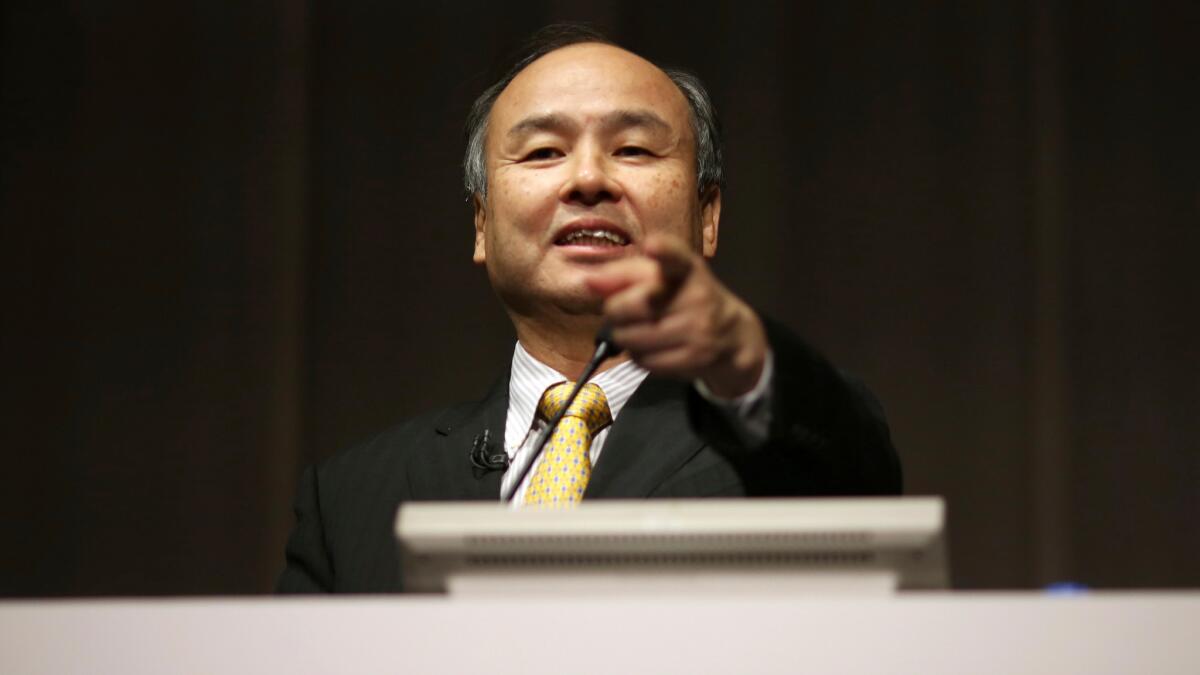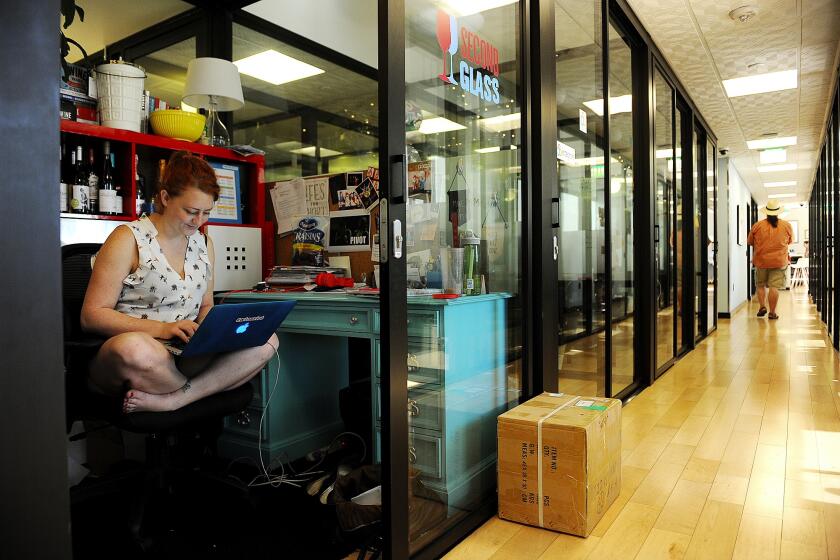SoftBank is in talks to boost its $1.5-billion pledge to WeWork

SoftBank is in talks with WeWork to increase a $1.5-billion investment the Japanese technology group has agreed to put into the office leasing company next year, according to people briefed on the matter.
SoftBank is considering promising an extra $1 billion or more to change the terms of a warrant agreement it struck this year with WeWork, before the company’s plans were thrown into disarray by this month’s failure to conclude its initial public offering.
A redone deal would see SoftBank invest at least $2.5 billion, but would reduce the price per share at which it acquires WeWork stock, giving it a larger stake in the loss-making property group, the people said.
The renegotiation is one of several options being considered as SoftBank debates propping up one of its largest investments. The talks are still early and the Japanese group led by billionaire Masayoshi Son could decide against investing altogether, the sources said.
An equity investment from SoftBank could unlock additional financing options for WeWork, which is in talks for a $3-billion to $4-billion loan from a consortium of banks, several people said. The loan package, which is being led by JPMorgan Chase and Goldman Sachs, is contingent on the company raising additional capital first.
WeWork and SoftBank declined to comment.
For founders like WeWork’s Adam Neumann, gargantuan funding offered an opportunity — or an imperative — to double down on unproven and money-losing business models.
WeWork was plunged into turmoil last week after it aborted its hotly anticipated IPO. The group received a chilly reception from institutional investors, who raised a raft of complaints, including the company’s swelling losses, byzantine corporate structure and governance concerns regarding Chief Executive Adam Neumann.
Neumann was forced out as CEO this week and has ceded majority control of the company. His successors are considering drastic options to keep WeWork’s parent, the We Co., from further financial distress.
Artie Minson and Sebastian Gunningham, the two WeWork executives who were elevated to co-chief executives on Tuesday, have considered laying off several thousand of the company’s 12,500 employees as well as jettisoning or shutting down non-core business lines, sources said.
The businesses up for sale include some of the companies WeWork purchased in the past two years, such as office maintenance and IT staffing provider Managed by Q.
It was unclear how a renegotiated deal between WeWork and SoftBank would affect the Japanese group’s valuation of its investment in the company. SoftBank and its Saudi-backed Vision Fund have already ploughed more than $9 billion into the group, not including the $1.5 billion set for April 2020 as per the terms of the warrant agreement.
Nothing about WeWork looks normal, and Wall Street may finally be waking up
SoftBank’s most recent investment valued WeWork at $47 billion, while public market investors balked at buying at even one-third of that. SoftBank had agreed to buy $1 billion of the $3 billion of shares WeWork expected to sell in its IPO, and both sides were ready to change the terms of the $1.5-billion investment to reflect the IPO price, but that deal was scrapped after the listing was postponed.
A $6-billion loan package was also contingent on the IPO, and WeWork is now attempting to work out a new financing package, given the chance it will fail to complete a flotation this year or next. The group burnt through more than $2.5 billion of cash in the first half of 2019.
Revenues have more than doubled over the last two years as WeWork expanded to have offices in more than 500 locations in 111 cities, but losses have climbed in tandem. For every dollar the company earned in revenue last year, it lost roughly two.
The financial strain on the company has become evident in corporate debt markets. The yield on a $702-million WeWork bond maturing in 2025 climbed to 9.8% on Wednesday.
© The Financial Times Ltd. 2019. All Rights Reserved. FT and Financial Times are trademarks of the Financial Times Ltd. Not to be redistributed, copied or modified in any way.
More to Read
Inside the business of entertainment
The Wide Shot brings you news, analysis and insights on everything from streaming wars to production — and what it all means for the future.
You may occasionally receive promotional content from the Los Angeles Times.












